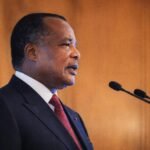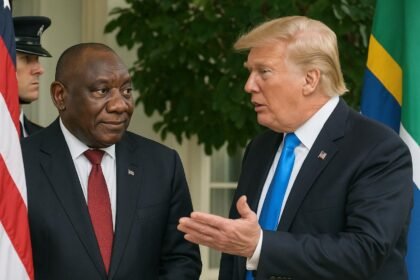A twin-pronged assault on mobility and money
At 00:01 a.m. on 9 June, President Donald Trump’s new proclamation came into force, imposing a total entry ban on citizens of Afghanistan, Myanmar, Chad, the Republic of Congo, Equatorial Guinea, Eritrea, Haiti, Iran, Libya, Somalia, Sudan and Yemen, and partial restrictions on seven more states. Africanews underlined that a majority of the fully banned states are African, making the continent the principal collateral victim of what the White House terms a counter-terrorism measure.
Barely a week earlier the House of Representatives folded a 5 % excise tax on all cross-border money transfers by non-citizens into its mammoth “One Big Beautiful Bill”, a package publicly endorsed by the president. Though framed as a revenue-raiser for border enforcement, remittance analysts warn that the levy will hit communities in sub-Saharan Africa hardest, where small-value transfers from relatives abroad account for up to 9 % of regional GDP.
Economic lifelines at risk
Central bank data already point to behavioural change. In April Mexico – the world’s second-largest remittance recipient – recorded its steepest monthly decline in thirteen years, a contraction economists link to congressional debate over the tax. Analysts at Banorte predict a “front-loading” of transfers before the levy takes effect, followed by a prolonged slump that could mirror the Mexican case across African corridors.
Manuel Orozco of the Inter-American Dialogue argues that squeezing remittances “will have a negative impact on the U.S. national interest,” eroding a stabilising flow that historically mitigates migrant pressure at the southern border . His caution resonates in Abuja, Nairobi and Dakar, where central bank governors privately warn of currency volatility if dollar inflows dip just as global commodity prices edge downwards.
Diplomatic and legal headwinds
The African Union, in a communiqué issued on 5 June, criticised the travel ban for jeopardising “people-to-people ties, educational exchange and commercial engagement” painstakingly built since the original Obama-era Young African Leaders Initiative. In N’Djamena, President Mahamat Déby responded by suspending visa issuance to U.S. citizens, signalling a readiness to retaliate.
Legal scholars are equally sceptical that the new restrictions can avoid the constitutional pitfalls that dogged Trump’s first-term bans. Yet the Council on Foreign Relations notes the administration’s heavier reliance on detailed Department of Homeland Security metrics, a drafting tactic designed precisely to survive judicial review. Politico reports that immigration-law litigators are already preparing for accelerated challenges in the Fourth and Ninth Circuits.
On remittances, Treasury officials concede that enforcing a blanket 5 % charge will require unprecedented surveillance of money-transfer operators, thrusting FinTech start-ups such as Chipper Cash and Wave into a regulatory limbo. African central banks, accustomed to encouraging digital channels to cut costs, now face a compliance dilemma: accept higher fees that drive transfers underground, or subsidise costs and absorb the fiscal pain.
Individually, travel bans and remittance fees are blunt policy tools; enacted together they risk compounding security-migration feedback loops that Washington and African partners have spent two decades trying to break. As Abuja’s foreign ministry dryly observed this week, “Visa walls and tax barriers seldom produce the orderly migration they promise.” Whether the U.S. courts – or the bond markets that price diaspora flows – will temper the twin initiatives may determine not only the tenor of U.S.–Africa relations in Trump’s second term but the livelihoods of millions who straddle two continents.


















